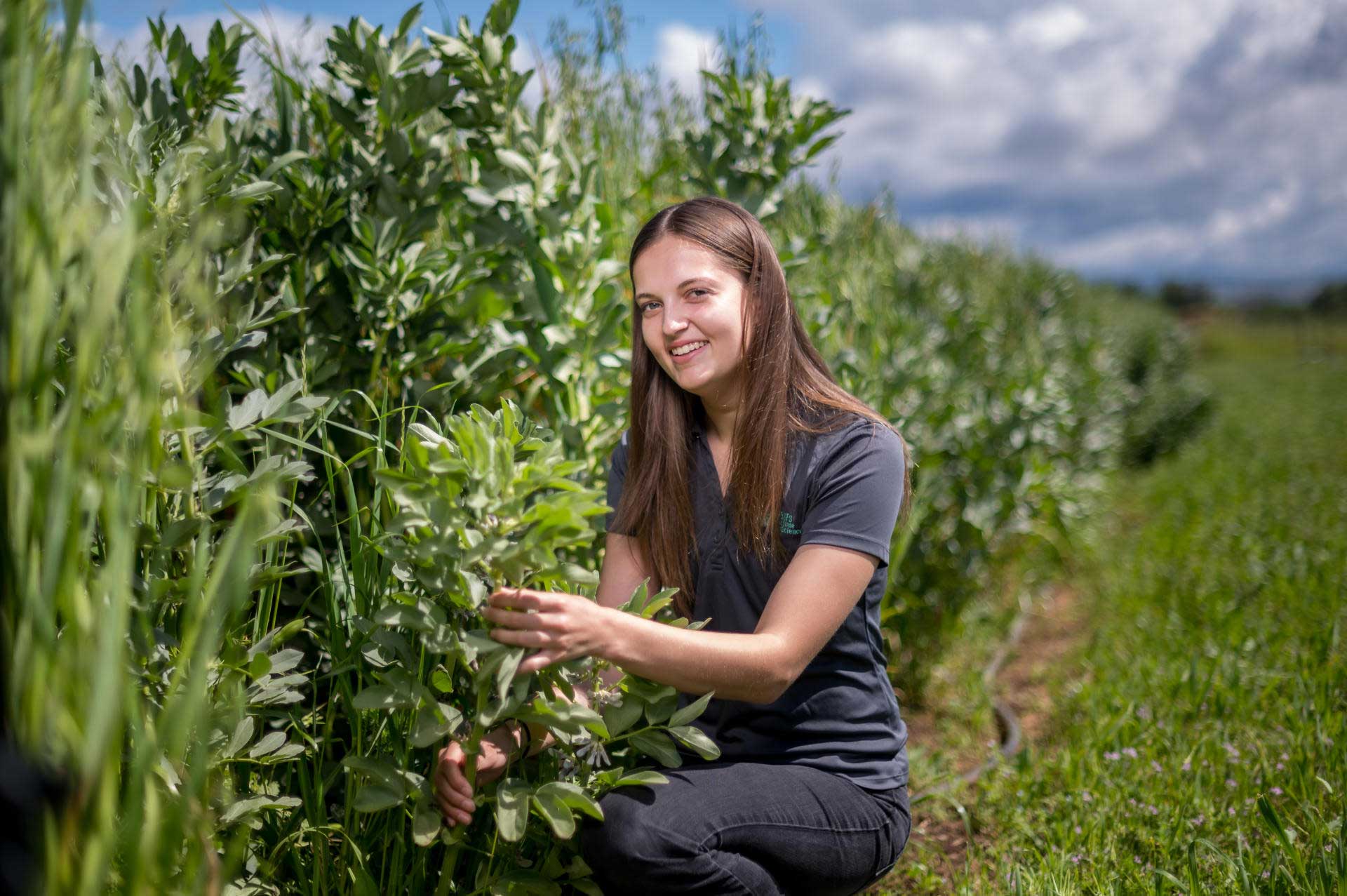Professors Provide Encouraging Push for Future Entomologist

Your college years are a time of exceptional growth—academically, socially, and philosophically. Who you are on day one is often very different from the person who throws their cap in the air at commencement. As members of the class of 2024 wrap up their time as undergraduates, we’re asking them to share their story of transformation.
Handling creepies and crawlies isn’t for everyone, but Maia Crummett will come running to check out something with several legs.
“Even though insects are really small, it’s cool how every part of them works for a purpose,” Crummett said. “I find them fascinating.”
Crummett will graduate this May with two degrees—one in agricultural business and another in plant and soil science—and plans to become an entomologist (a scientist focused on the study of insects). She says that a career as a professor might be the eventual endgame, though there will be plenty of years of studying before she decides.
Crummett doesn’t mind bugs, but what does send shivers down her spine is talking in front of large groups of people. She still prefers praying mantises over public speaking, but the fast, hot fear it once produced in the Redding native has abated.
She credits her professors with helping her face her biggest fears by first getting to know her and building trust, and then challenging her to stretch herself. She says this formula has helped unlock potential she didn’t know was there.
She says “Economic Entomology” was the hardest class she took, but since she loves a good challenge, it was also her favorite. Professor Elizabeth Boyd recognized her aptitude for the subject and connected Crummett with consultant (and former Chico State professor) Steve Gruenwald, leading to a position working with 27 different growers and scouting 22,000 acres of orchards for pests. The growers were not only kind and knowledgeable, but they confirmed for Crummett that she did belong in ag. She now plans to pursue a doctorate in entomology and eventually teach or work alongside growers in the field.
***
In Her Own Words:
A large hurdle for me is my own mindset. I hear that little voice in the back of my head and start to question things like: What am I going to do with a degree in agriculture when I don’t live on a farm, and are their going to be positions available for me in ag as a woman?
But the support system here has been great. My courage has come from a combination of my own mindset, that failure isn’t really an option, and the support system here. Even when things don’t go right, I get right back to work and try again until I get it. But at the same time, I never would have given a 10-minute oral presentation to a room of PhDs if Dr. Z (Professor Hossein Zakeri) hadn’t signed me up and told me I had a month to prepare. People here are willing to challenge me because they see something in me that I maybe didn’t see in myself.
I’m not the most eloquent speaker, so presenting research in front of PhDs was scary. It was something I never would have done on my own. But Dr. Z told me, ‘English is not my first language. If I can do it, you can.’ And every time I’ve gotten up and spoken in front of people, he has been in the crowd. Every time I see his face out there it is so encouraging.
He also included me in his research with faba beans. That entire experience, including the real-world opportunities to get my hands dirty and expand my knowledge base, was priceless.
He figured out the way I learn and what motivates me, and he used it to get me out of my comfort zone. I’m amazed at how many of the professors and staff have taken the time to get to know me in that way. When I walk down the hall, they all say hello to me. They all know my name. Last semester, I got really sick, and the doctor told me I wouldn’t be back to school that semester. I emailed (Student Success Advisor for the College of Agriculture) Lindsey Jeffery and within days all my professors were emailing and calling me and doing whatever they needed to help me succeed. My friends were emailing packets. By the time I was good enough to come back to school, I was completely caught up.
The opportunities I have had in the field and in the classroom have given me opportunities to grow in ways I could never have imagined.“


